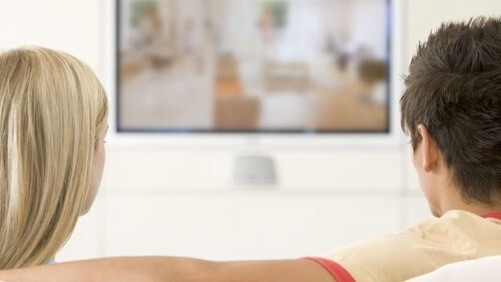
If there’s one app that everyone’s talking about at MIPCube as the benchmark for engaging TV viewers on a ‘second screen’, it’s Zeebox.
In under five months, this UK-based startup’s viewing companion app has made its mark with resoundingly positive reviews (ours is here), BSkyB taking a 10% stake, partnerships with broadcasters to provide special content for viewers, and high demand for the app to launch beyond British shores.
We caught up with co-founder and CTO, Anthony Rose today to take stock of Zeebox’s achievements so far and look to where it’s going next.
“It feels amazing,” says Rose about the reaction to Zeebox since its launch in Novemeber 2011. “There’s an expression ‘JFDI‘, people have been talking about doing things (like Zeebox) for ages, and I think that just going out there and doing it is actually key – instead of talking about the future, go out and build it. Try it, do an agile development and see what works and what doesn’t.”
Rose was clear that the startup’s new deal with Vestel to bring the app to smart TVs wouldn’t mean that Zeebox would take over viewers’ screens with social information (“It would be horrible,” he says). Instead, it would enhance the experience of the app by syncing the in-app content with what you’re watching, and allowing the app to act as a remote control, as it already does with some set top boxes. While on-screen social alerts will be on offer, they’ll be optional.
Coming to Android as soon as Monday
The lack of an Android app for Zeebox has been a source of frustration for users of Google’s OS, as the TV ads promoting Zeebox (part of its partnership with BSkyB) show a mocked-up version running on an Android device. Finally, the real thing is due to be released within the next few days – all being well, on Monday.
Heading to the US soon, more countries to follow
Zeebox is focusing on launching in the US next, “in a couple of months’ time,” with former Time Warner Cable Media Senior Vice President, Jason Forbes at the helm there. Following the US, it appears that Australia, France or Germany will follow, although the exact timing for these launches isn’t decided yet.
Keeping it agile with new features every two weeks
 While it’s packed with potential, Rose admits that Zeebox isn’t yet at the ‘tipping point’ in terms of adoption where you can always have a rich, social experience with it. In order to get there, new features are being added to the product every two weeks – a little longer than that on iOS thanks to the Apple approval process.
While it’s packed with potential, Rose admits that Zeebox isn’t yet at the ‘tipping point’ in terms of adoption where you can always have a rich, social experience with it. In order to get there, new features are being added to the product every two weeks – a little longer than that on iOS thanks to the Apple approval process.
On the way is the ability to book a time to watch shows with your friends, which should help make the app feel more social. This will be complemented by more activity feeds and the ability to comment on shows as you watch.
Focus is key in social TV
Of course, Zeebox is just part of a wider movement as startups look to make TV more social in a variety of ways. As an industry veteran best known for his work on the BBC’s iPlayer, Rose observes that the key problem many social TV startups suffer is that they try to do too many things at once – targeting both consumers and businesses, covering both editorial content and product bases. Focusing on one or two core factors and iterating quickly is much better than trying to be a major player from the off.
You can listen to the full conversation, which also looks at Zeebox’s plans to experiments with second screen advertising, its API and more, below.
➤ Zeebox
Follow all of our MIPCube coverage via our dedicated channel.
Get the TNW newsletter
Get the most important tech news in your inbox each week.





